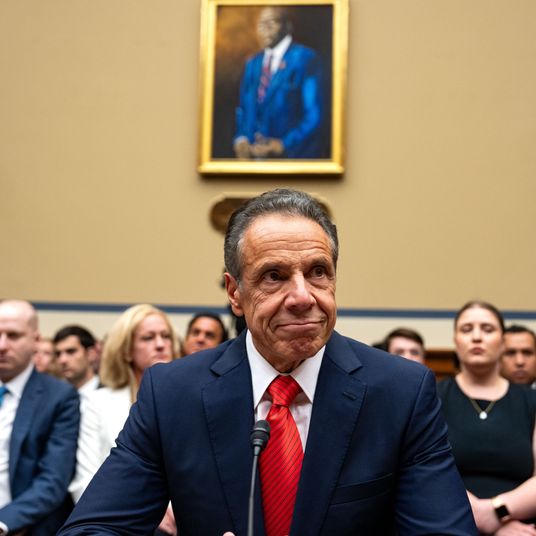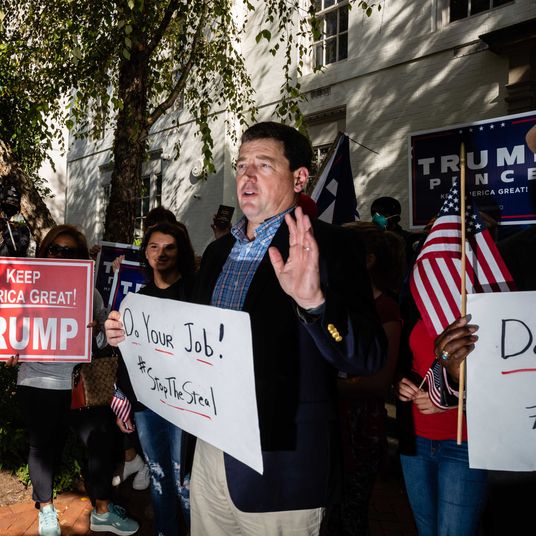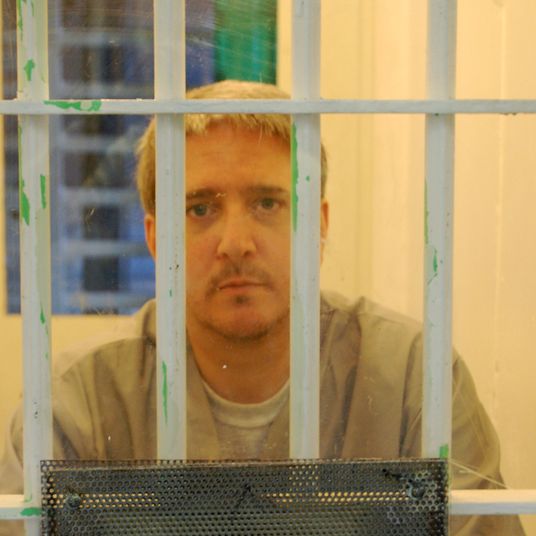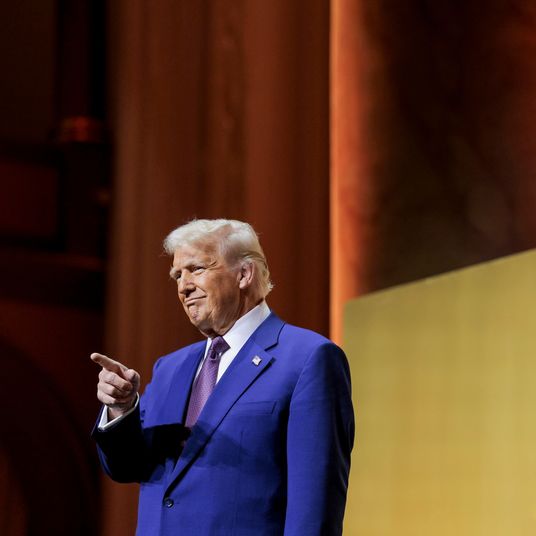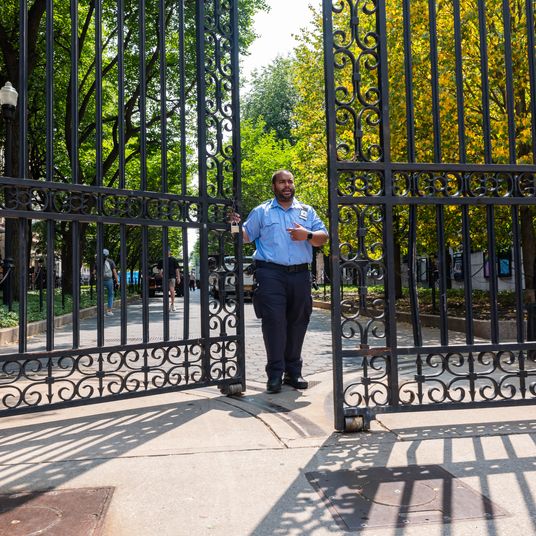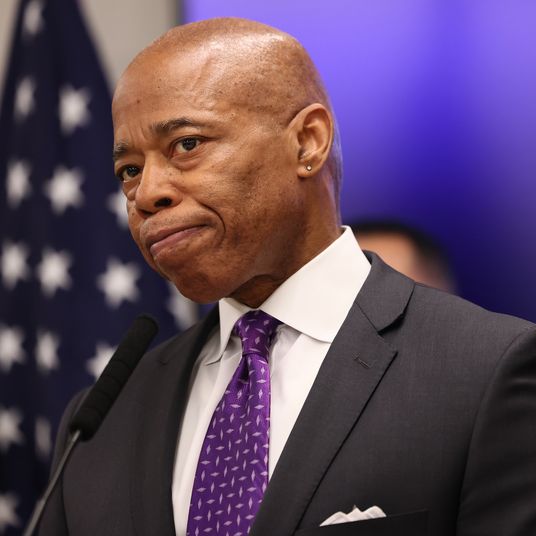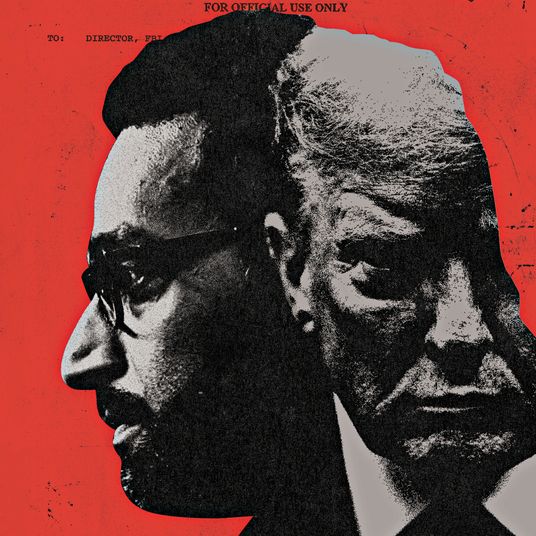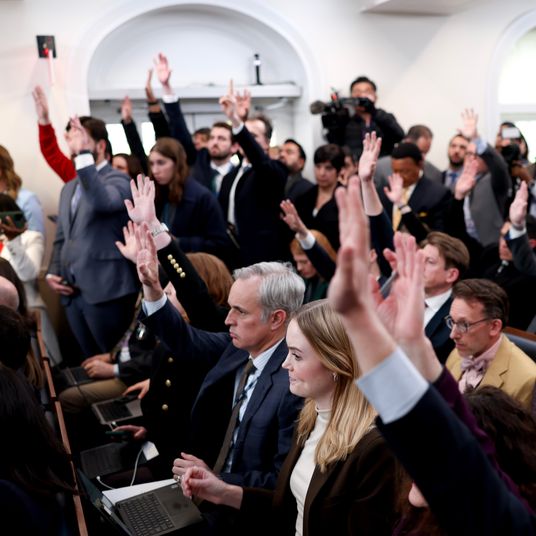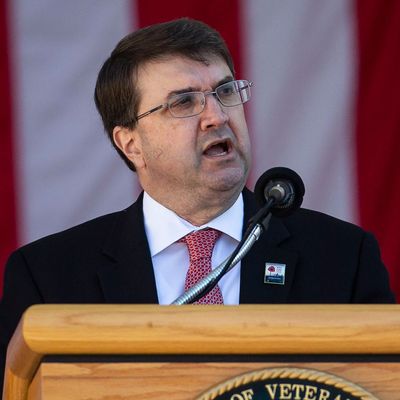
I know the president thinks of the veneration of the evil racist conspiracy of the Confederacy as being just part of its admirers’ “heritage.” But you’d figure that even in his administration, the one place you’d expect to be free of nostalgia for the Lost Cause would be the VA, with its heavily minority clientele and its identification with the patriotic United States service-members who were killed and maimed by the traitorous men in grey.
But maybe not. There was an incident just this last October when a senior VA manager had to be forced to take down a painting of Nathan Bedford Forrest, known even more for his role as founder of the Ku Klux Klan than for his slaughter of African-American prisoners. Said manager professed not to know that there were issues with this terrorist all-star.
Now it transpires (thanks to CNN) that the Secretary of Veterans Affairs Robert Willkie was a lionizer of the Confederacy and particularly of the Traitor-in-Chief who led it, Jefferson Davis, in the not-so-distant past. The most extensive recorded example of this hobby CNN found was a speech in the U.S. Capitol by Willkie when he was a thirty-something aide to a North Carolina House member (having already put in a stint with the legendary Tar Heel racist Jesse Helms). Here are some excerpts:
“In the case of Jefferson Davis, we must tell America the truth about the complicated man who carried with him the dreams of Southern independence,” he said. “His life was the reflection of the simplicity and perseverance of a proud people; men and women who endured the horror of defeat and its equally hellish aftermath; men and women who through their Christian prism understood the fall of man and the imperfection of human institutions – that not all of man’s noble experiments succeed….”
Wilkie added Davis’ “unbroken spirit” after the war served as a reminder to the southern people “that their cause was honorable and that all would be right in the end.”
There’s a lot more where that came from, but worse yet, Willkie linked the “honorable cause” of the Confederacy to the contemporary conservative movement he served:
Once again the halls of Congress reverberate with odes to rugged individualism, state sovereignty, and contempt for the centralized super-state,” Wilkie said in closing. “These are bloodless battles Davis could never fight but, they are no less vital for the future of American civilization. As our cities decay and our standards and spiritual traditions deteriorate, America is searching for a better way. Walker Percy urged us to look South to recover community, stability, and sense of place in God’s order which we have regrettably lost. That is a tall proposition but it is certainly one Jefferson Davis would understand and certainly one for which he would fight.”
This isn’t historical commemoration or even “nostalgia” for the imagined Eden of the antebellum South. This is an example of “neo-Confederacy,” the effort to whitewash history in the cause of present-day reactionary politics, which flourished before and during the civil rights movement and is enjoying a renaissance more recently, as I noted when Trump joined it after the Charlottesville riots:
The Neo-Confederates lost the battle against civil rights, but maintained a cultural rearguard for many years. You heard at least a faint echo of their words every time a conservative Southern politician hailed “law and order,” or attacked “the welfare,” or demanded maximum incarceration of African-American “predators.” This sort of politics maintained an unmistakable connection to nostalgia for the Old South, an imagined tranquil place of good manners and interracial understanding.
That would appear to describe Willkie, who didn’t stop delivering speeches in honor of the memory of Confederate leaders until quite recently:
In 2009, Wilkie spoke to a Maryland division of the Sons of Confederate Veterans – Jefferson Davis Camp 305 – which meets in the DC-area.
The group’s webpage at the time featured a Confederate proclamation from 1862 calling Union occupation of Maryland “oppression” and “tyranny” and “terrible despotism.” The head of that camp at the time, according to reports and archived web pages, was Richard T. Hines, a prominent member of the neo-Confederate movement.
It’s extremely unlikely that Willkie gave his audience a cautionary sermon on the evils of neo-Confederacy, but if he did, we’d all love to hear about it. When CNN asked VA’s spokesperson about it all, the response was pretty ludicrous:
Veterans Affairs press secretary Curt Cashour did not address the content of Wilkie’s remarks when asked by CNN but said in a statement that the events Wilkie attended “were strictly historical in nature, and as Secretary Wilkie said at his confirmation hearing in June, he stopped participating in them once the issue became divisive.”
Yeah, right, the confederacy and Jefferson Davis – responsible for more U.S. military deaths than any hostile leader with the possible exception of Hitler–wasn’t “divisive” until the day before yesterday.
Let’s not confuse Willkie’s tributes to Confederate leaders with simple regional identity or with honors paid to brave soldiers (including my own ancestors) who had no choice about serving in an unjust war. Jefferson Davis was the man who led them into unspeakable suffering and his region into more than a century of grinding poverty–all in the cause of maintaining the enslavement of a majority of the population of his own state. Davis’ actions were monumentally anti-Southern. Yet that’s who Willkie chose to venerate as a member of the Sons of Confederate Veterans. If he wants to recant this outlook, let him do so now. But please, Mr. Secretary, don’t pose as some sort of victim of political correctness. If intolerance of Jefferson Davis (and of Robert E. Lee and Nathan Bedford Forrest and other Confederate Leaders) is truly a recent development, it’s a good and essential one, particularly in the agency that cares for those who sacrificed for the the country these men tried to destroy. Let’s bury the Lost Cause once and for all, not to obscure history, but to illuminate it.







